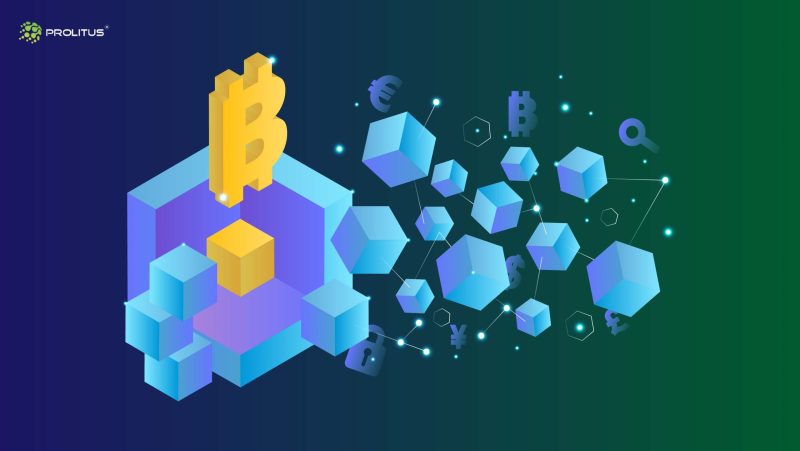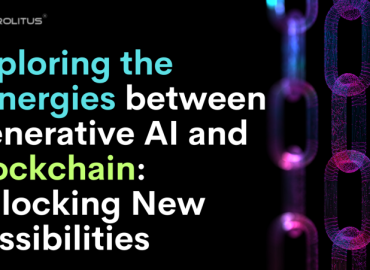According to a report, the global blockchain market will reach $137.29 billion by 2027. Growing at an astounding CAGR of 62.7% from 2020 to 2027, Blockchain is conquering almost every sector with its revolutionary technology. Big data is on a spree to change the way organizations do business.
However, blockchain technology is a shared ledger that records and tracks transactions and assets in the business network, while data science deals with finding insights from raw and unstructured data.
As data science and blockchain technology are increasing, the complexity of analyzing the data is also proportionately increasing. Blockchain analytics brings technologies together and analyzes this data by tapping into their potential.
What is blockchain analytics?
The global cryptocurrency market is expected to reach $4.94 billion by 2030, with a 12.8% CAGR from 2021 to 2030. Bitcoin was the first application of blockchain technology. Fast forward to 2022, and more than 10,000 cryptocurrencies exist in the ecosystem.
Data analytics is the process of gaining answers by analyzing the raw data to make informed business decisions. It uses machine learning and other technologies to extract insights from structured and unstructured data. Data helps to boost the organization’s growth by providing them with trends and insights for informed decisions. Let’s now read about blockchain’s impact on data analytics.
Blockchain data analysis is a process to get valuable insights for better risk assessment by understanding, classifying, and monitoring blockchain transaction data. Blockchain in data analytics is a breakthrough in studying data and is the most promising application of data science.
Law enforcement officials and regulatory authorities gain complete visibility of unauthorized transactions to track the movements of criminals and identify them. Similarly, individuals can make better decisions by getting better visibility of trends and investments.
Relation between Blockchain and Data Science
Blockchain and data science both have “data” in common. Blockchain views, records, and validates data to be added to the ledger. Similarly, data science delivers better insights for problem-solving and decision-making. Data science and blockchain apply algorithms to interact with other data segments, as the former is for predictions and the latter is for data integrity.
How is blockchain impacting Data Science?
Although blockchain and data science are already doing well in their respective fields, the amalgamation will add another layer of security. Blockchain will help to secure the data generated by data science. Similarly, the data present on the blockchain is more structured, massive, and ready for further analysis. Both technologies have unique benefits that, when combined, can save money by storing and analyzing data. Let’s study the five primary ways blockchain enhances data science.
Enhanced Data Traceability
Blockchain technology helps to establish peer-to-peer transactions. It is specifically helpful at times when a different account can analyze and review the methodology if one account cannot explain the results achieved. Since blockchain is a transparent ledger that gives users the freedom to trace data, the user will get to know which data is reliable to use, how to store and update it, where it comes from, and its usage.
Real-Time Analysis
Although tracking data in real time is complex, blockchain technology enables companies to analyze data proficiently to identify any irregularities early. With blockchain technology, many people can work on the same information simultaneously, and the changes can be made and assessed by different users in real time.
Improved Data Accuracy
Blockchain ensures only the examined data is added to the blocks. It cross-checks for any faults, cross-checked at the entry point itself. Along with complex mathematical algorithms, blockchain encrypts every transaction in the ledger and acts as immutable and irreversible digital contracts between the parties.
Seamless Data Sharing
Blockchain technology helps to facilitate the seamless transfer of data for the smooth functioning of an organization. It enables anyone to view, transfer, and access data in real time simultaneously for many users. Hence, the seamless data flow without restrictions streamlines the administration process.
Enhanced Data Integrity
Since data breaches were rising, improving data authenticity and storage capacity was essential. We already know that data is prone to inaccuracies, errors, or duplicates as we get it from different sources. The blockchain came as a breakthrough technology to ensure the authenticity of data at every block of the chain.
It led to organizations adapting blockchain technology as data is now secure, verified, and cross-checked at every block. Hence, the possibility of data hacking and leaks is significantly reduced.
Prolitus is your partner for blockchain analytics
Prolitus is an expert in providing blockchain analytics services and end-to-end blockchain protocol development services for businesses. We have a team of experts with years of experience in blockchain and data science to help you navigate your journey easily.
Final Thoughts
Transparent record-keeping and robust security are enabled by data science and blockchain technology integration. Even though blockchain is still evolving and there will be more improvements in important use cases, data science will benefit greatly from all of the changes.
As the popularity of blockchain technology is increasing, it is also increasing the importance of blockchain analytics. Blockchain in data analytics enables transparent access to immutable ledger transactions. It is already witnessing the adoption by industries, from digital finance to food safety to healthcare to weapon tracking.
Frequently Asked Questions (FAQs)
How is blockchain technology impacting the industry?
Blockchain technology has numerous characteristics that lure businesses to harness its potential. A blockchain has unique benefits, such as security, privacy, contracts that can't be changed, decentralization, and saving time and money.
Can data analytics be used with blockchain?
Data science, along with blockchain technology, ensures the authenticity of data at every point on the chain. Since data is protected at every step by multiple signatures, it is being used in every industry on a large scale.
Which industries are using blockchain analytics?
Healthcare, supply chain, banking, transport, retail, and manufacturing industries have leveraged blockchain analytics tools.
How does big data analytics benefit cryptocurrency?
Big data can add an extra layer of security to cryptocurrency by finding trends or patterns in illegal practices. Companies can use the patterns to make their security systems more secure and stop hackers from getting in.





